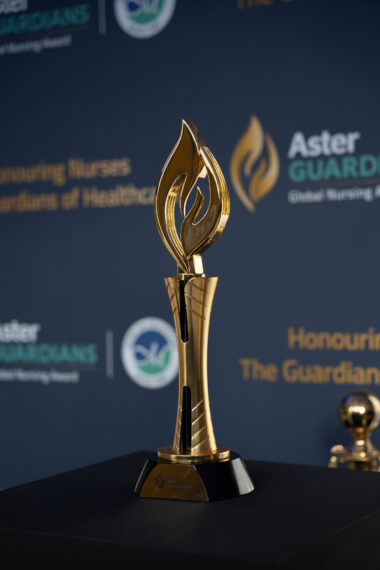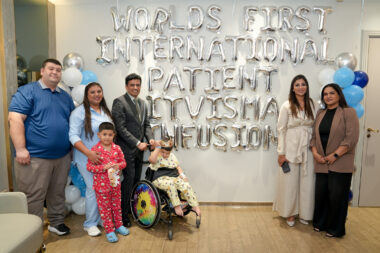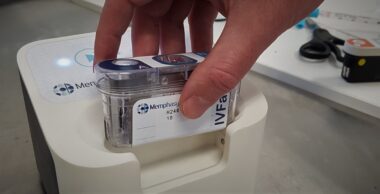Local opportunities and a sustainable work, life and study balance are what drove Rebecca Kopke-Bennett to study a Master of Clinical Audiology with Charles Darwin University (CDU).
The Darwin local previously studied postgraduate qualifications in education and psychology, but the chance to work in allied health and the opportunity to train locally sparked her interest in enrolling in the two-year Master, which CDU launched last year.
“I knew I wanted a new challenge, and audiology sparked this interest from a personal and educational career perspective,” Ms Kopke-Bennett said.
“The Master of Clinical Audiology at CDU was more affordable for me as a mature age student than the tuition fees of other universities. I am also a firm believer in supporting our local institutions.”
The Northern Territory has the highest percentage of hearing loss and ear health issues in Australia, and a shortage of qualified audiologists.
Ms Kopke-Bennett plans to be part of the solution by putting her skills and passion to use after graduating.
“I plan on working in the discipline as soon as I graduate. Fortunately, I have some leads regarding potential graduate career pathways available,” she said.
“I ideally want a combination of both local (urban) and regional or remote work, as the diversity of needs related to hearing health is particularly variable in the Northern Territory.
“I developed sound communication, problem-solving, collaboration, flexible working, and empathy skills for a person-centred care approach in my role as an educator and look forward to utilising these skills as I embark on my graduate internship in 2024.”
Universities prove regional education works
There is significant evidence to show the correlation between training locally, retaining and building a sustainable, local workforce.
Following Charles Darwin University’s (CDU) application for Commonwealth Supported medical places, the University is raising awareness of the Northern Territory’s health landscape, the solutions and why more medical places are needed.
Data from the Medical Schools Outcomes Database’s National Data Report 2022 shows in 2021 out of 1593 respondents, 28 domestic students chose the NT as their first preference for future practice.
In the last five years, the lowest number of first preferences of domestic students to practice medicine in the NT was 11 respondents out of 1474 in 2020.
James Cook University (JCU) in Townsville was the Australia’s first new medical school in 25 years and the first medical school in the country to be based out of a metropolitan area.
A study on insights into the first 20 years of JCU’s medical school revealed in 2019 about 50 per cent of mid-year graduates (post-graduate years between five and 15) were working in non-metropolitan areas, mostly in North Queensland.
About 33 per cent of these graduates worked in regional cities, 14 per cent in rural towns and 3 per cent in remote communities.
Professor Ian Wronski is a Senior Advisor to the Vice-Chancellor in CDU’s Development of Health and Medical Workforce in North Australia.
He was a pivotal figure in the development of JCU’s medical school. Professor Wronski said the impact of the school was transformative for northern Queensland and could have a similar affect for the Northern Territory.
“There’s a huge gap in health workforce production in the Northern Territory; pathways for local kids to get into health professions and medicine,” Professor Wronski said.
“The health system can’t expand without enough workforce production, not only in medicine but in nursing, midwifery and more. Charles Darwin University is critical to this. We’ve seen what a dramatic impact a medical school can have in central and north Queensland.
“A university with a medical school is an entirely different entity to one without a medical school. It doesn’t just affect medicine, it affects what a university does across the disciplines and in research.”
In August 2022 CDU, Menzies School of Health Research and Western Sydney University signed a Memorandum of Understanding (MoU) to collaborate on developing a high quality, relevant curriculum for the CDU Menzies School of Medicine.
Western Sydney University established its medical school in 2007 and has educated more than 1,350 graduates.
The University’s School of Medicine Dean, Distinguished Professor Annemarie Hennessy AM said through the Western Sydney University’s partnerships and initiatives across New South Wales, it found an unmet need for regional training of the next generation of home-grown doctors.
“It is evident that there is a high demand from residents who want to access training in medicine in the regions, who would have otherwise been deterred from a career in health due to barriers such as commuting to the city,” Professor Hennessy said.
“Western Sydney University has demonstrated that providing high-quality training in a regional setting for medical students greatly contributes to developing a skilled, passionate and highly engaged local workforce.
“This opportunity should be offered to Territorians, including through the establishment of the Charles Darwin University Menzies School of Medicine, as it’s the right thing to do to bolster the nation’s medical workforce and to address the unique health challenges of the Northern Territory.”
Contact details:
Raphaella Saroukos she/her
Communications Officer
Marketing, Media & Communications
T: +61 8 8946 6721
E: [email protected]
W: cdu.edu.au



